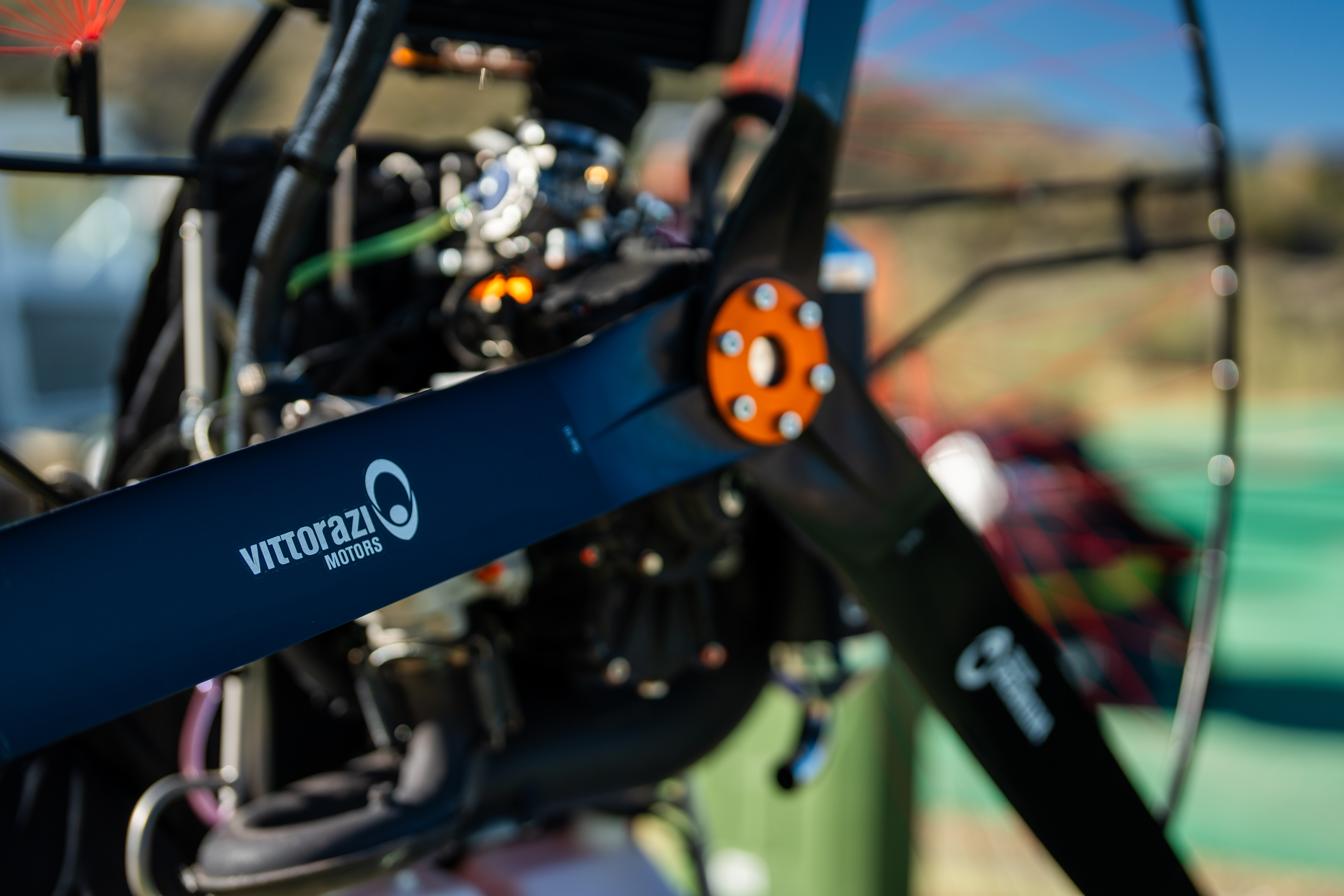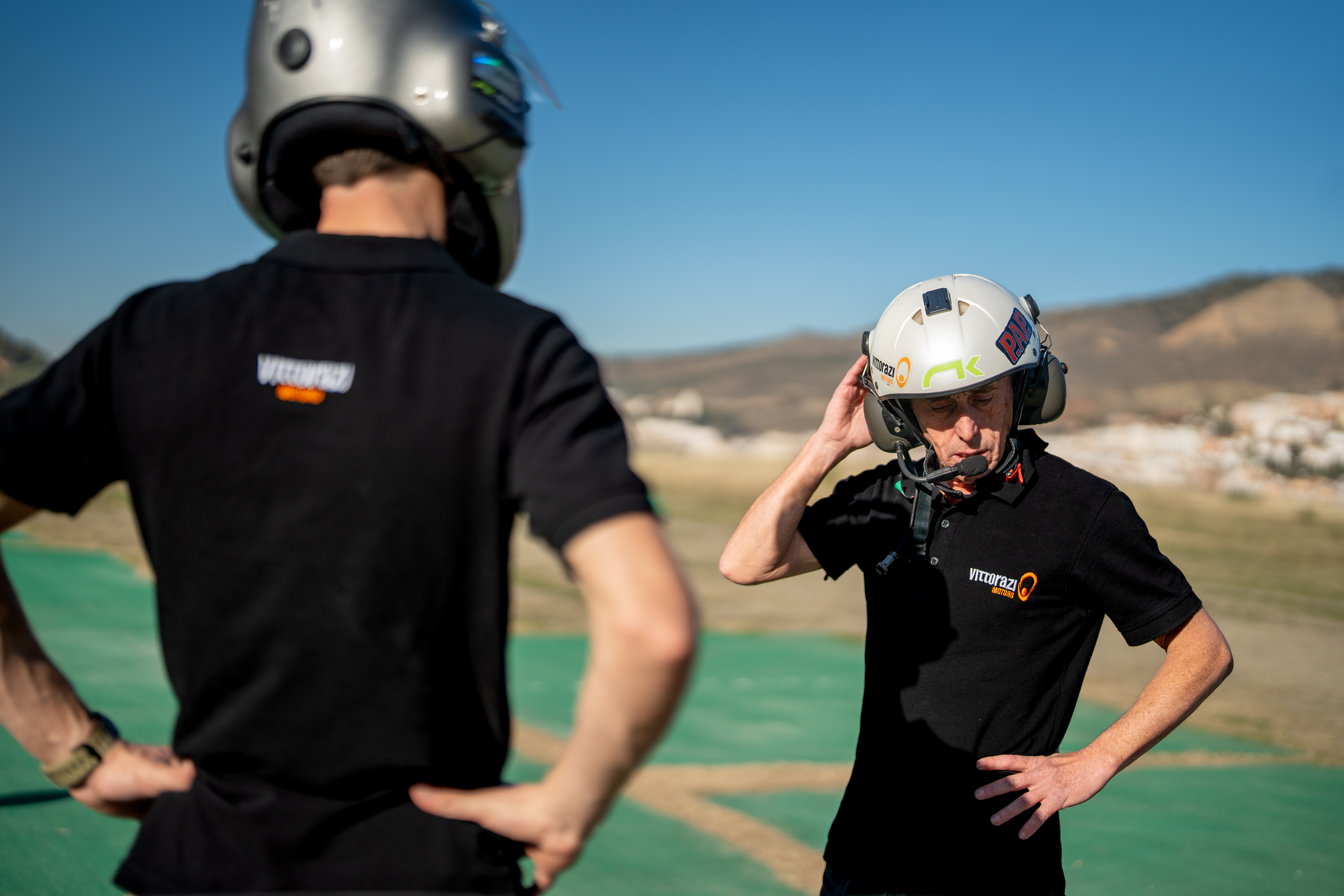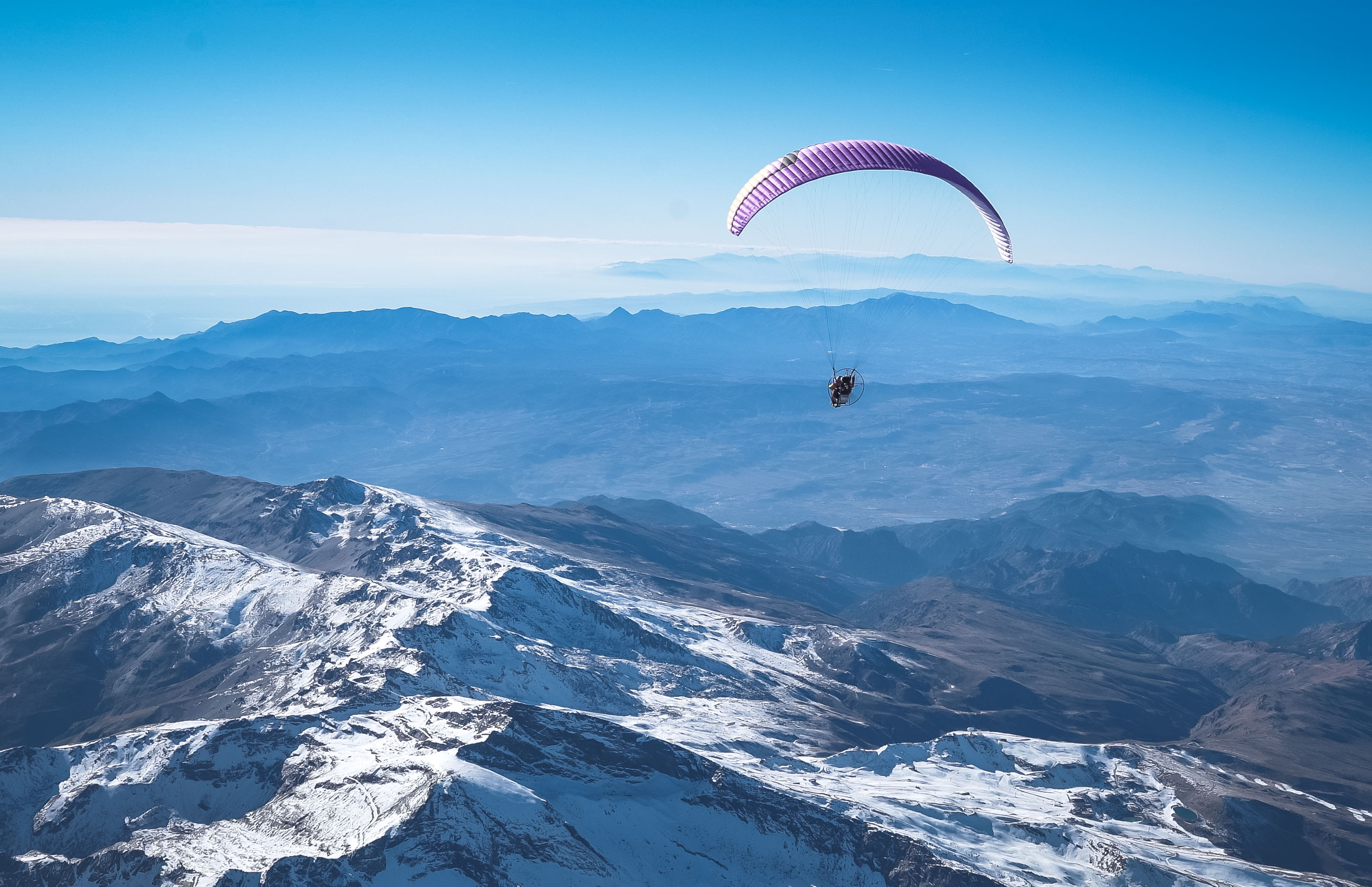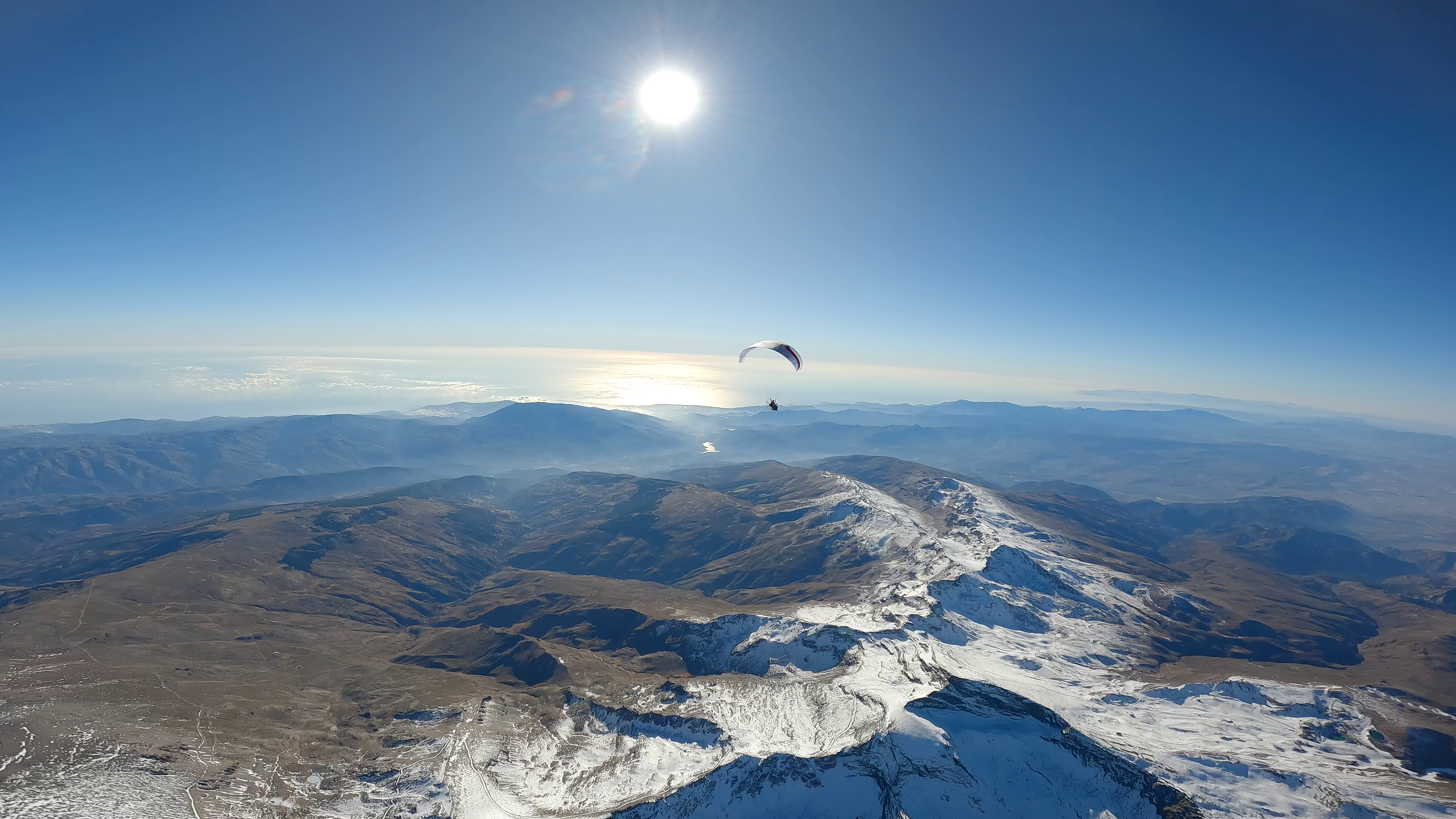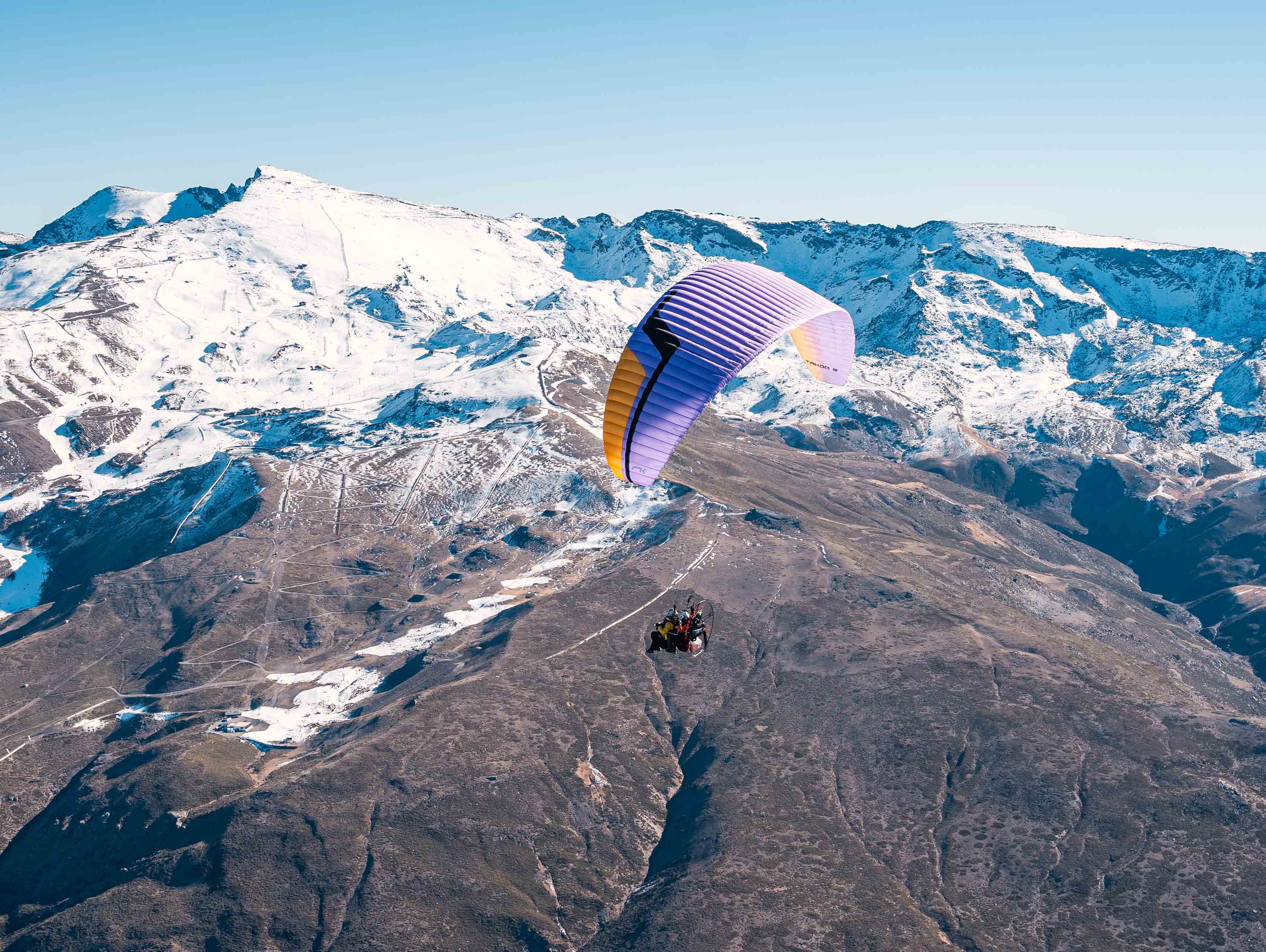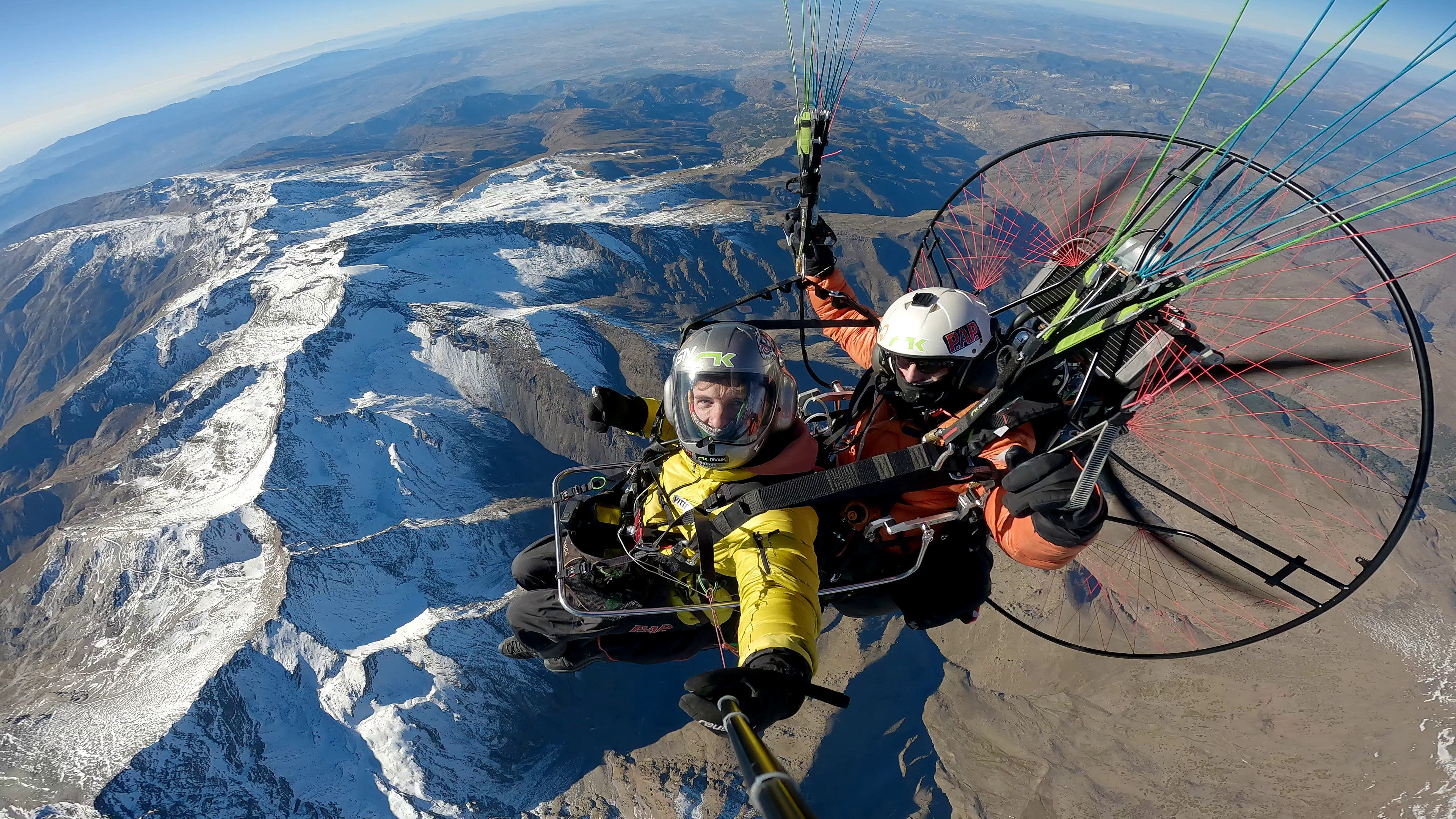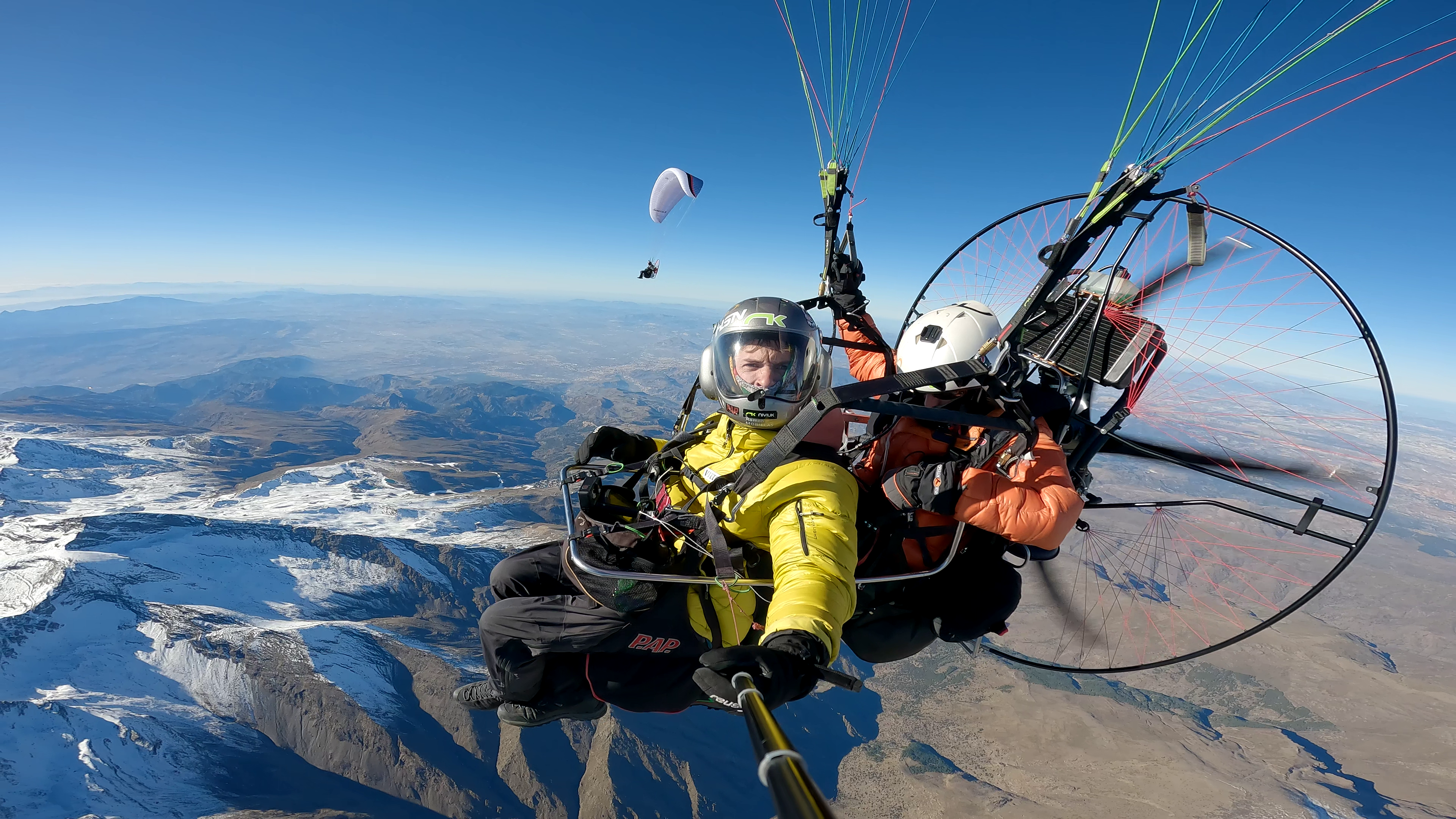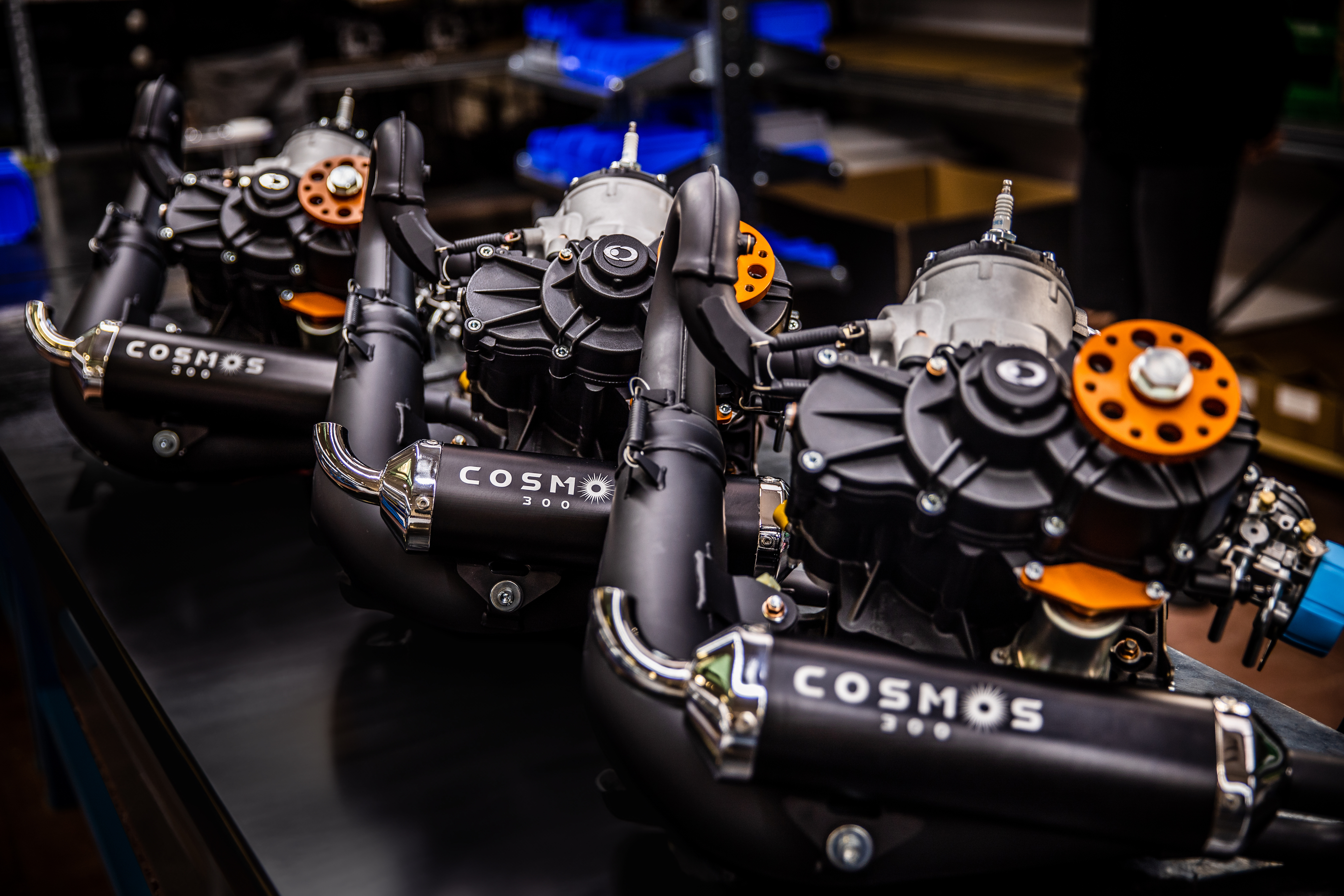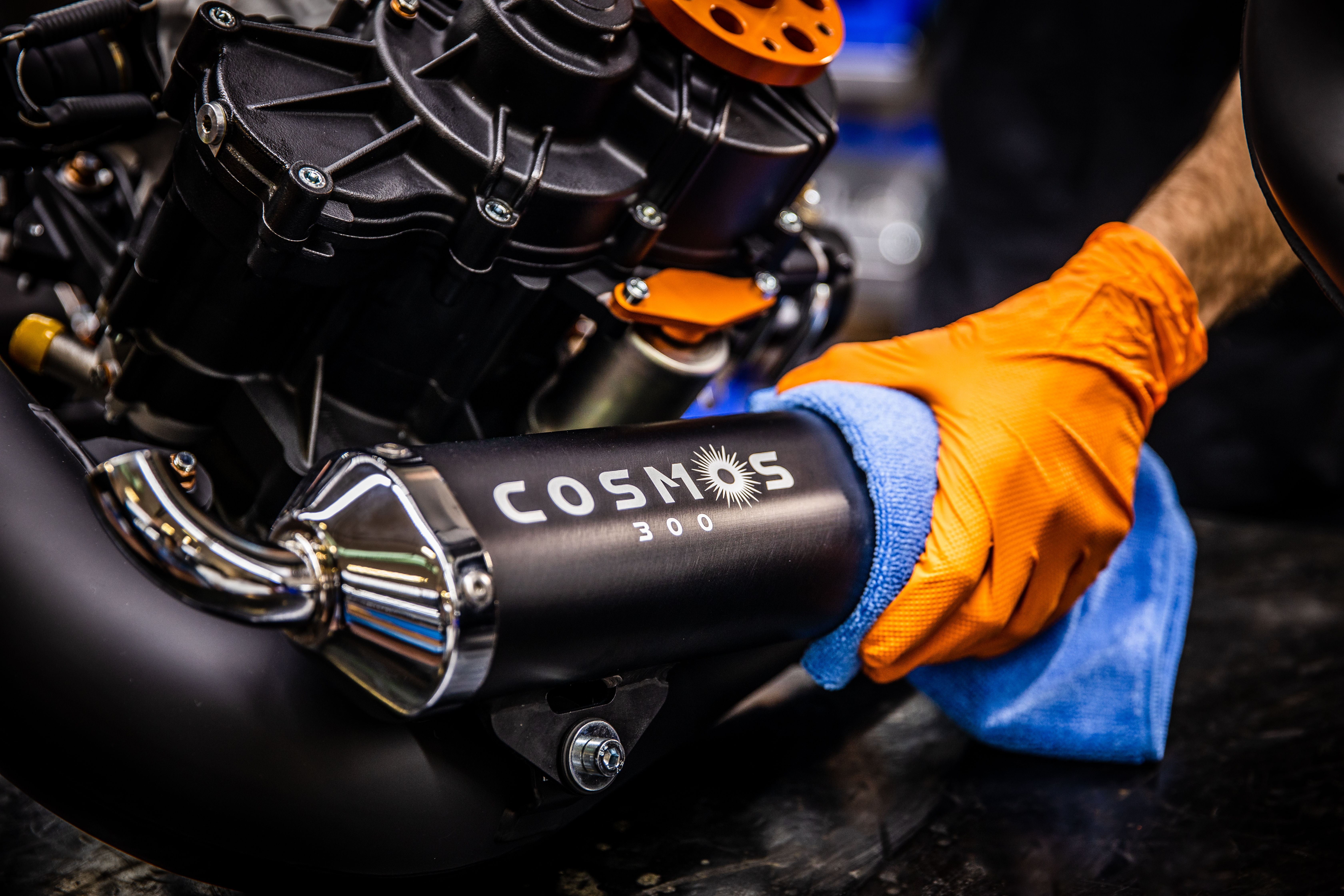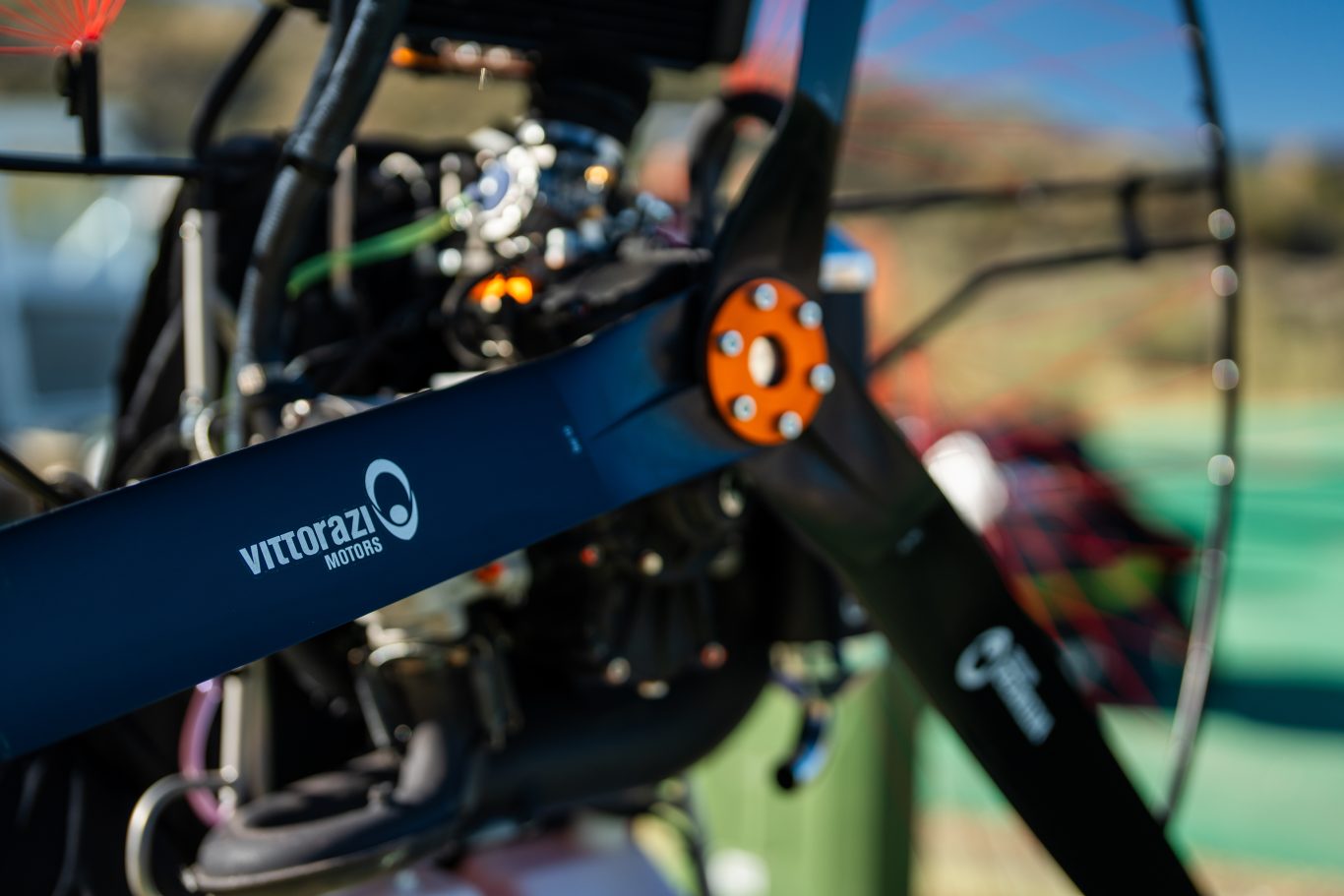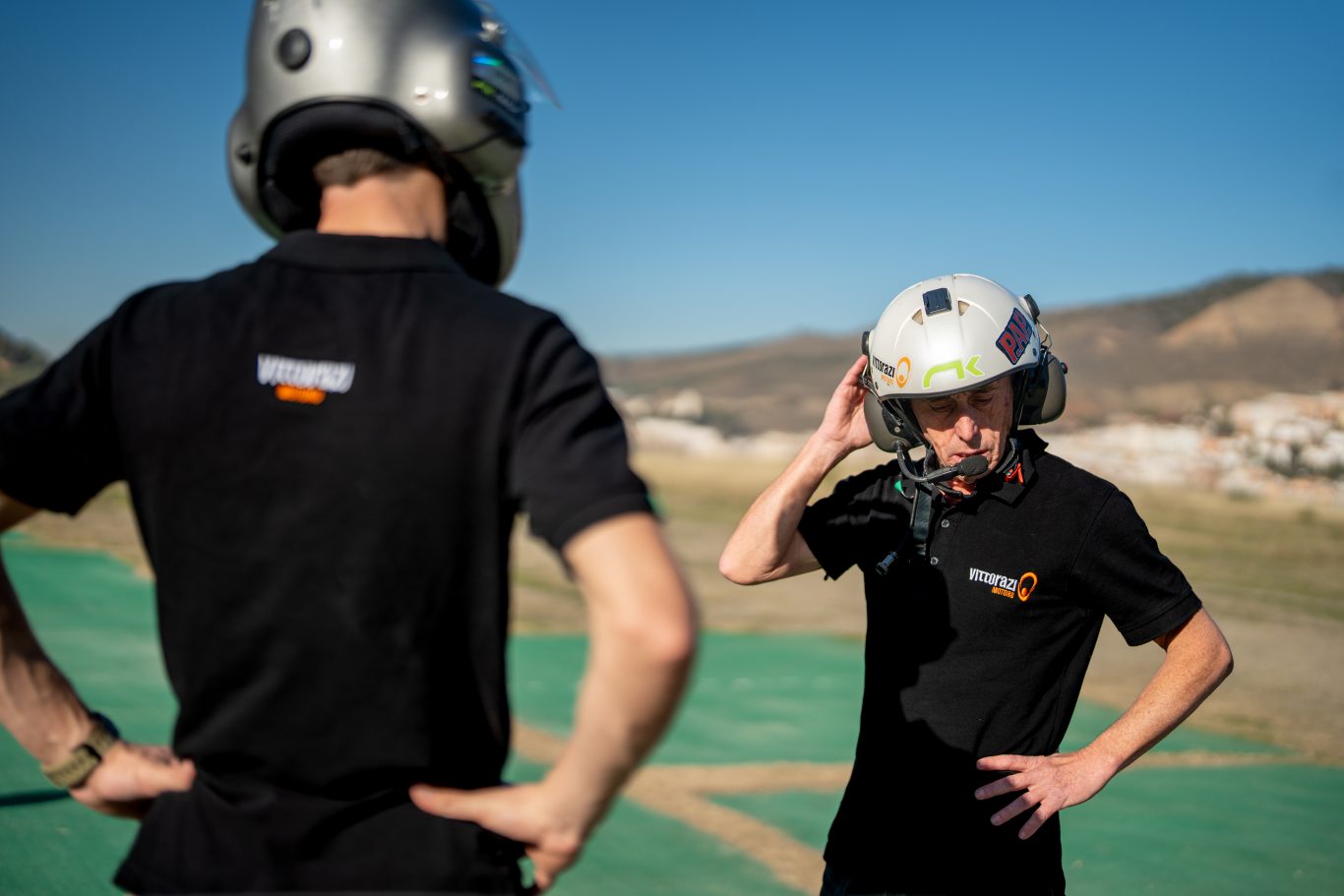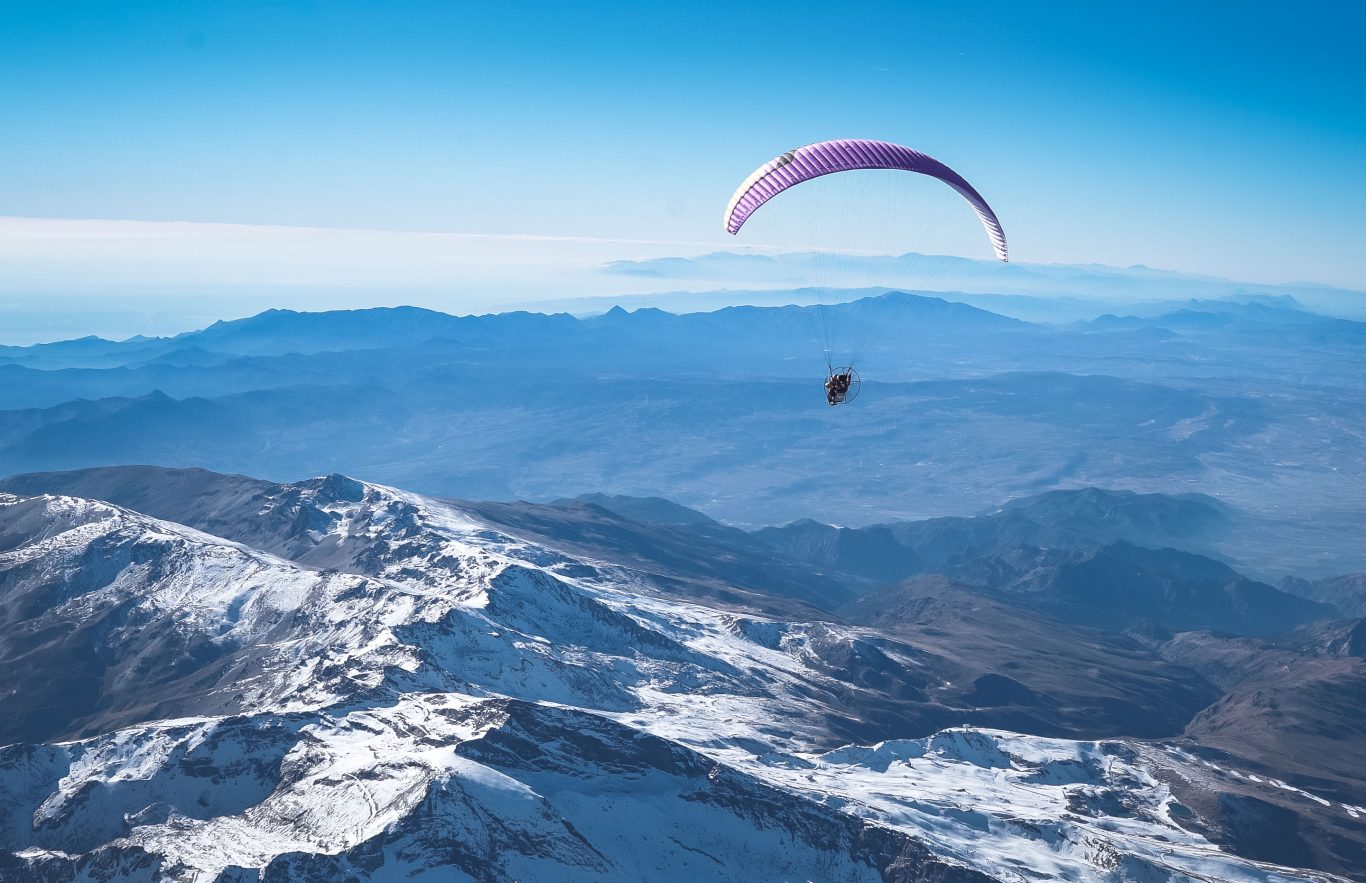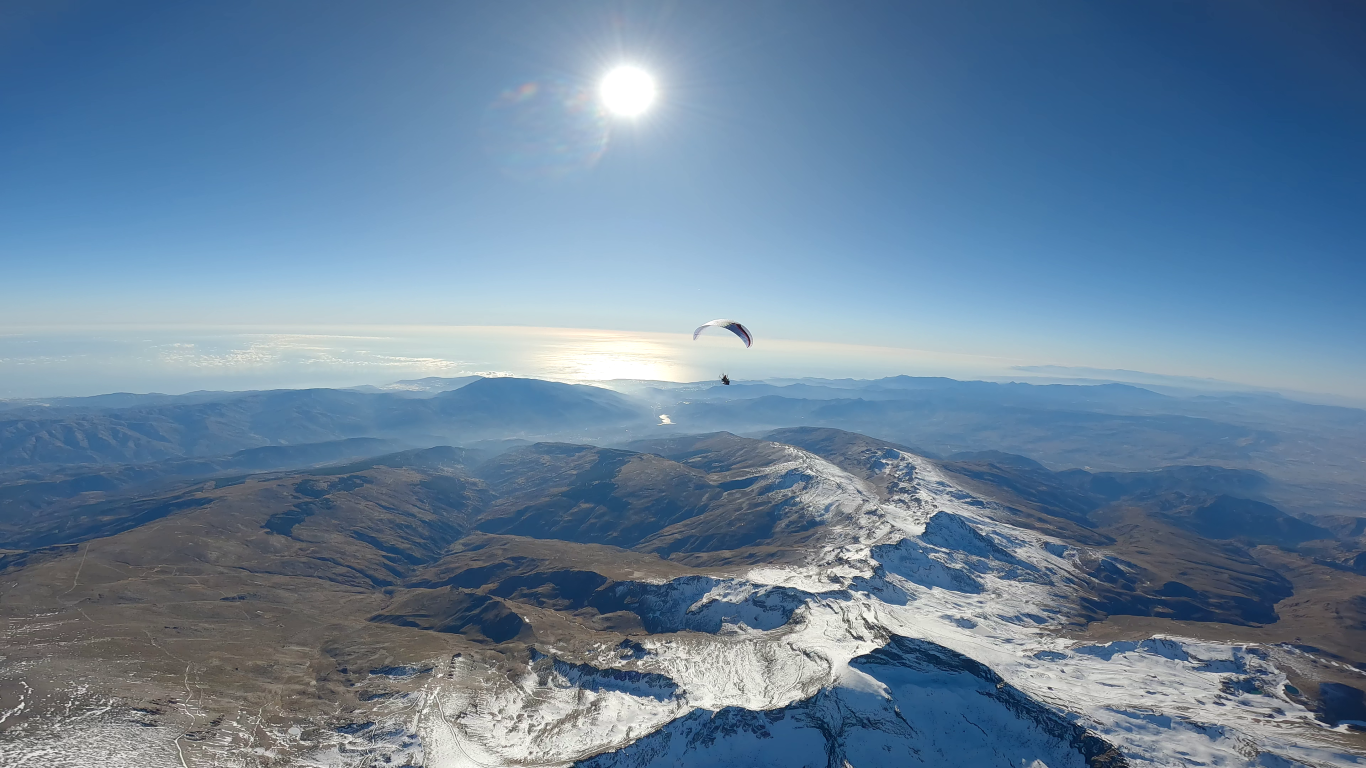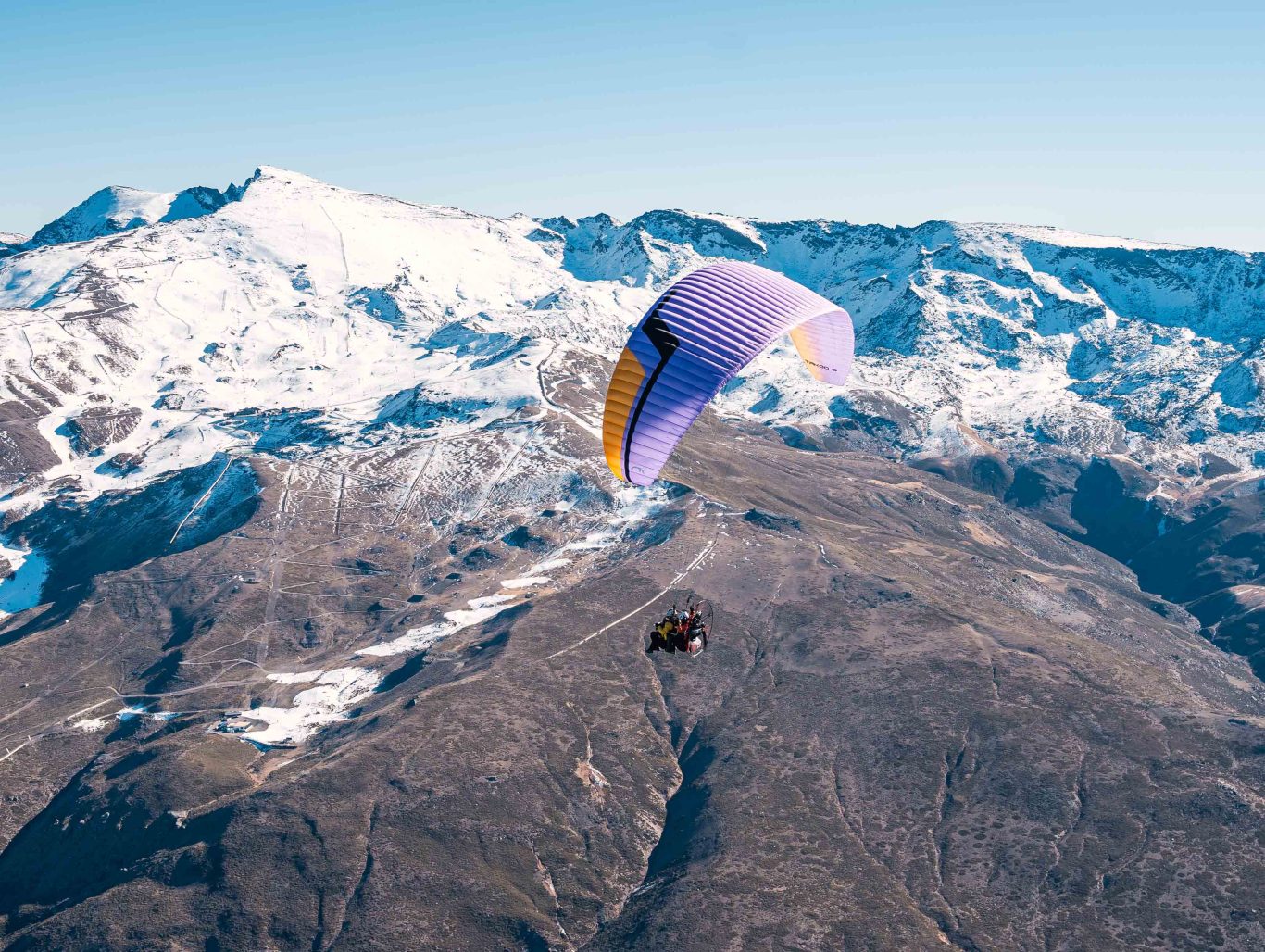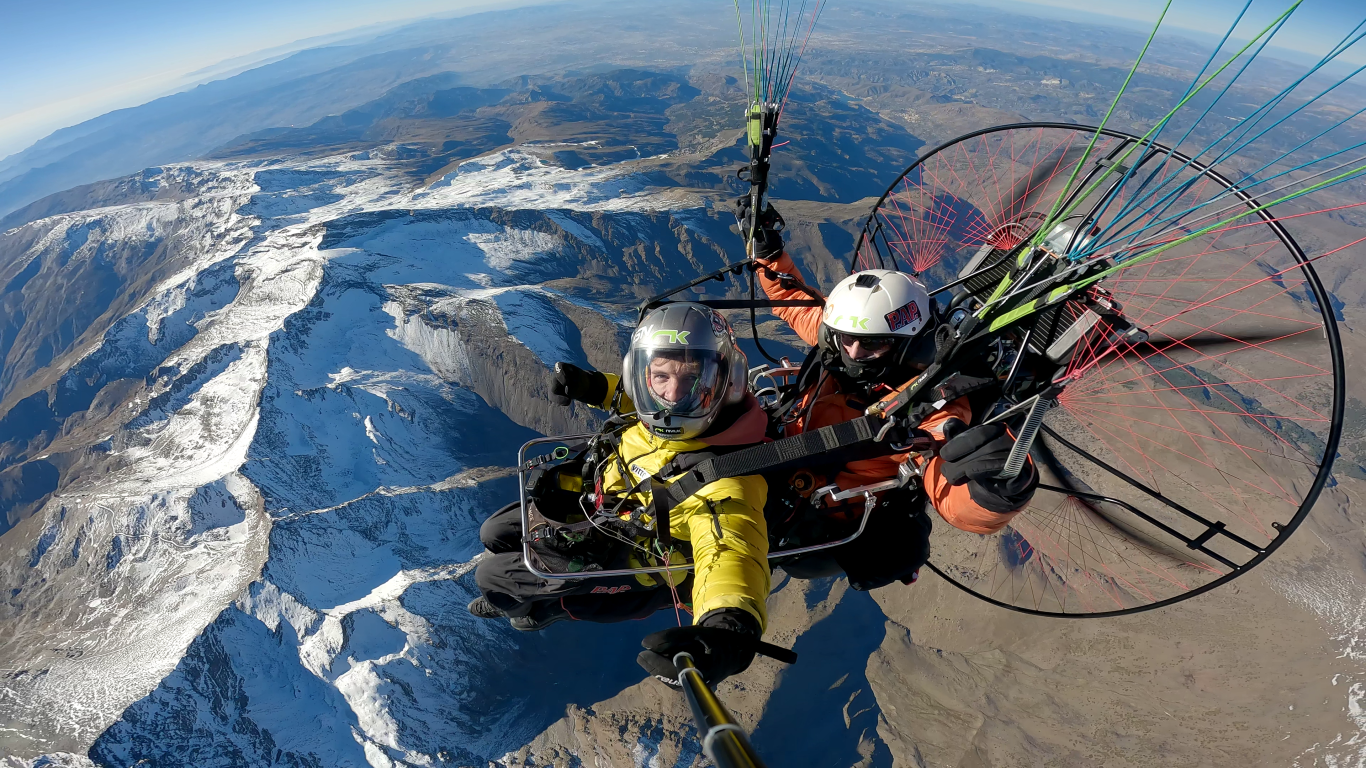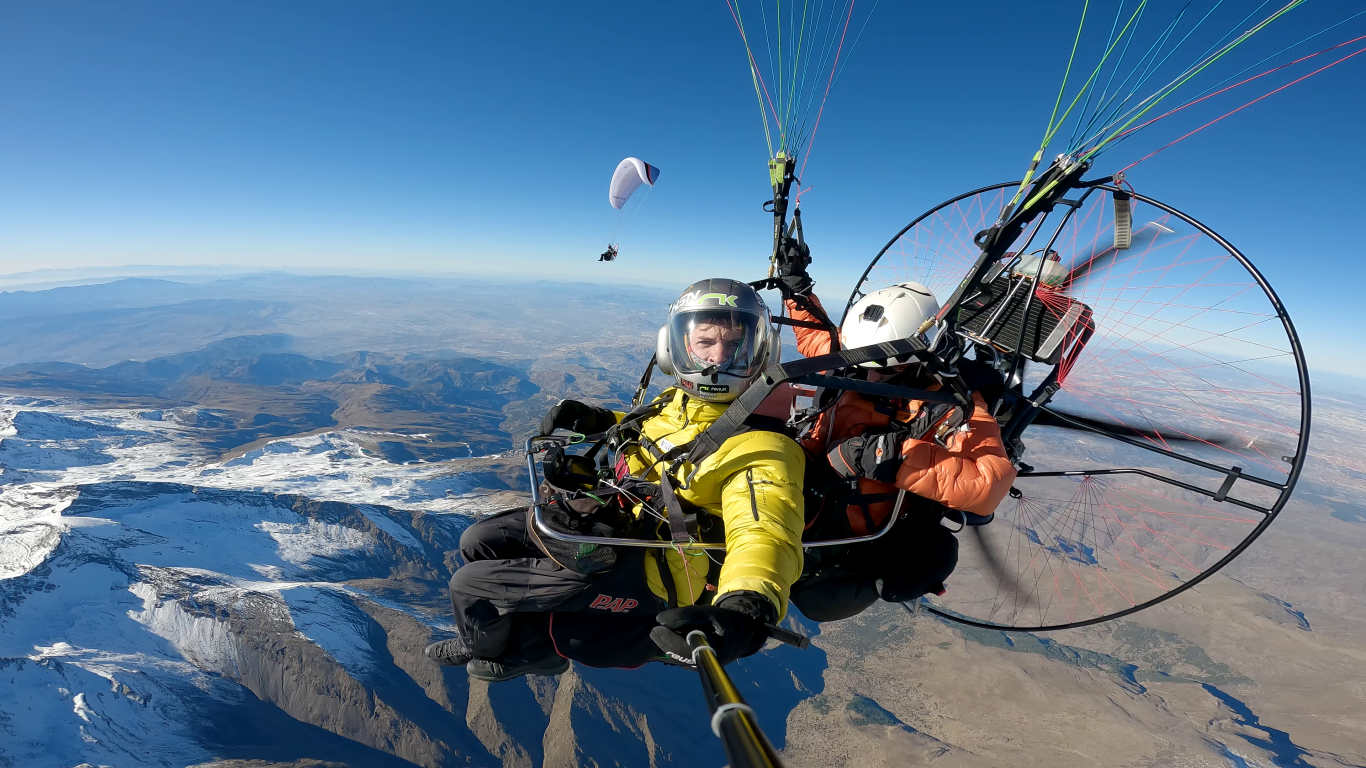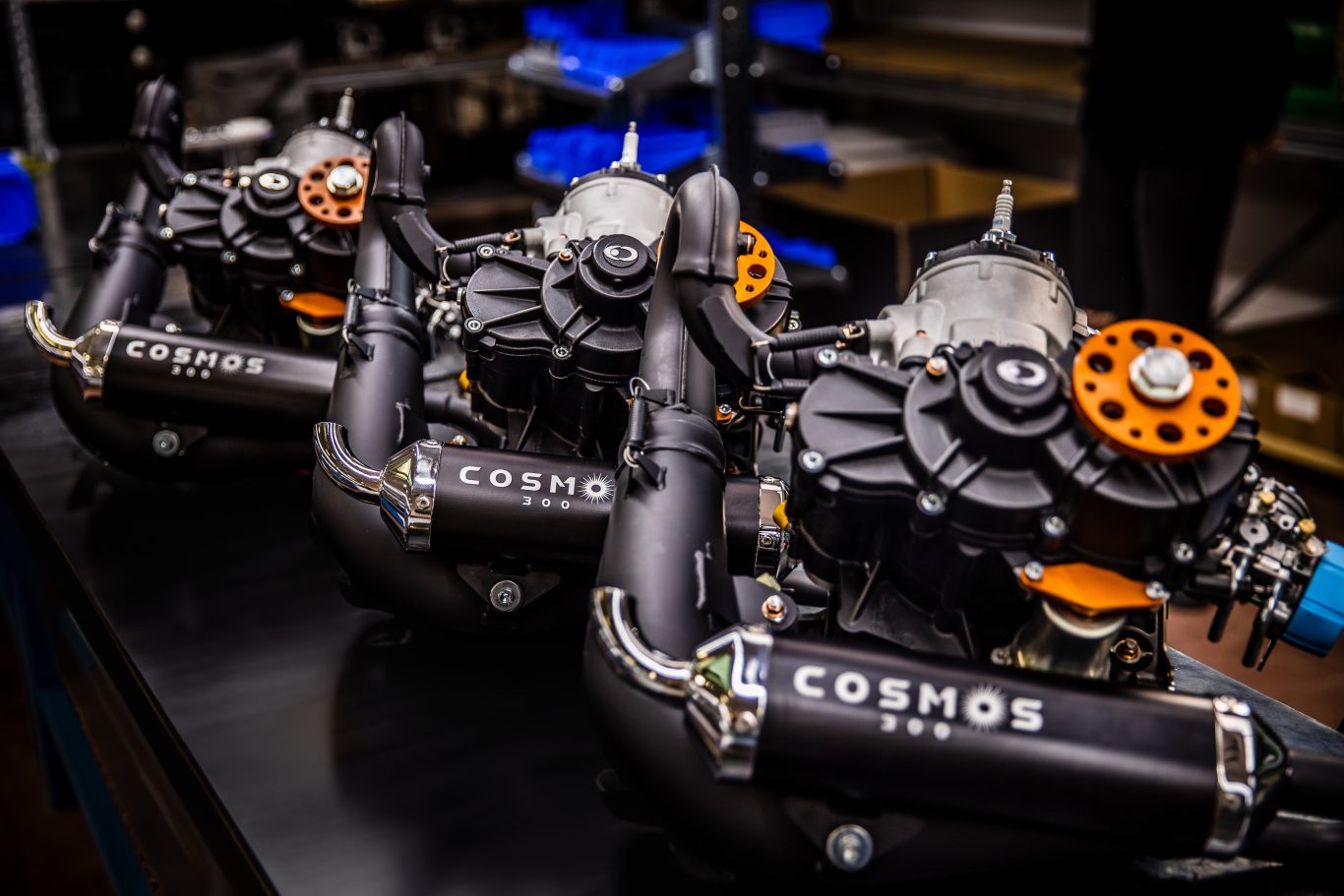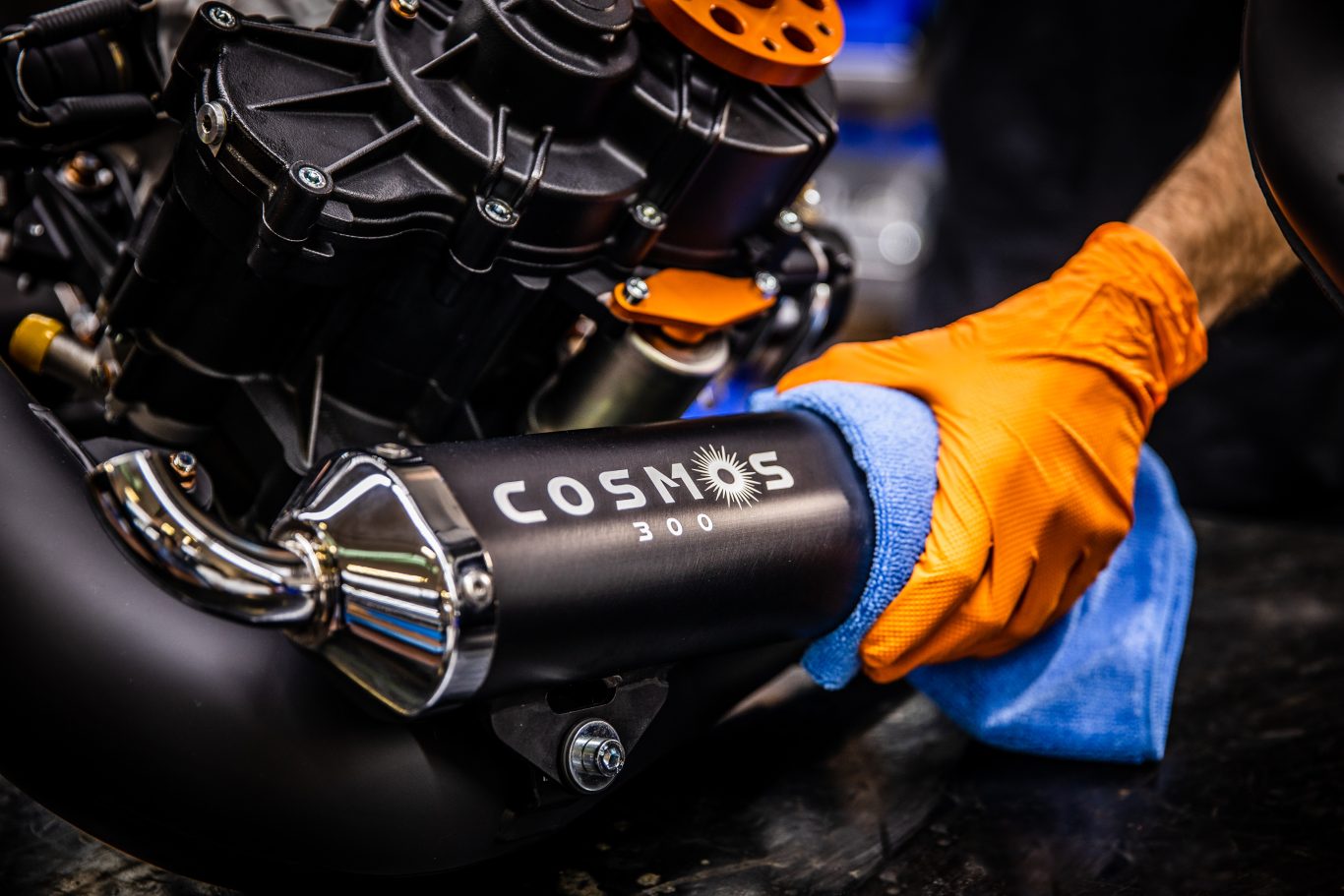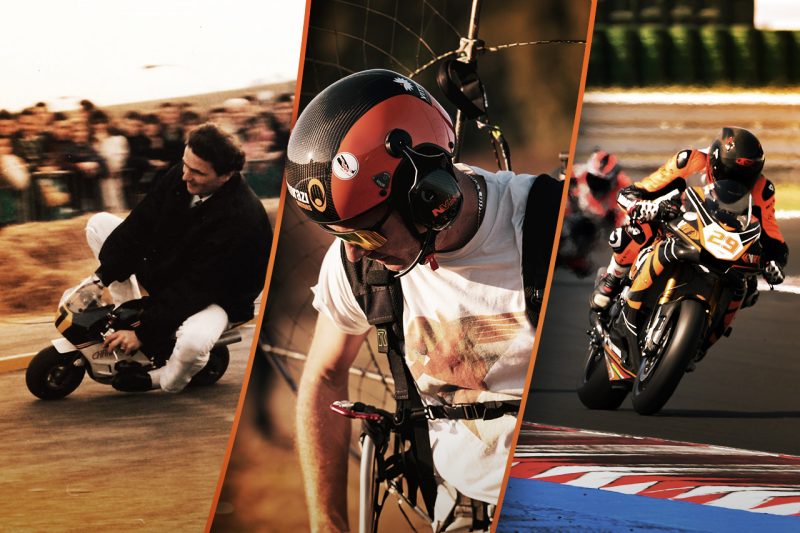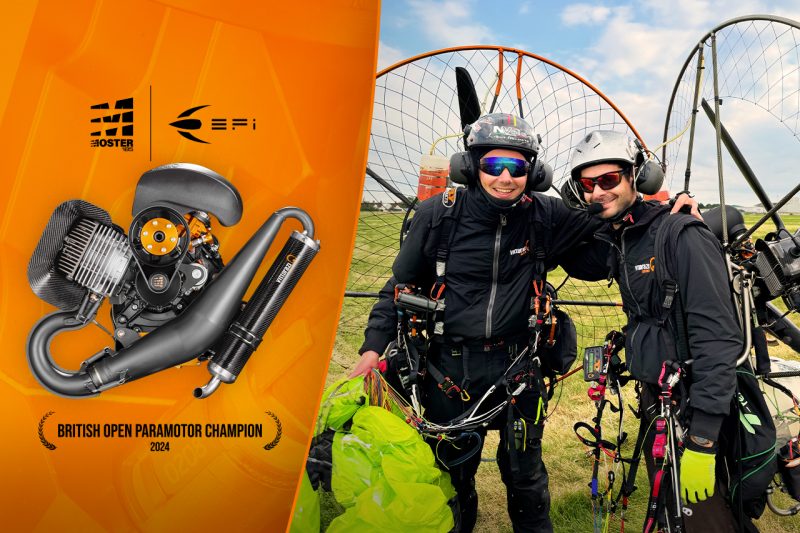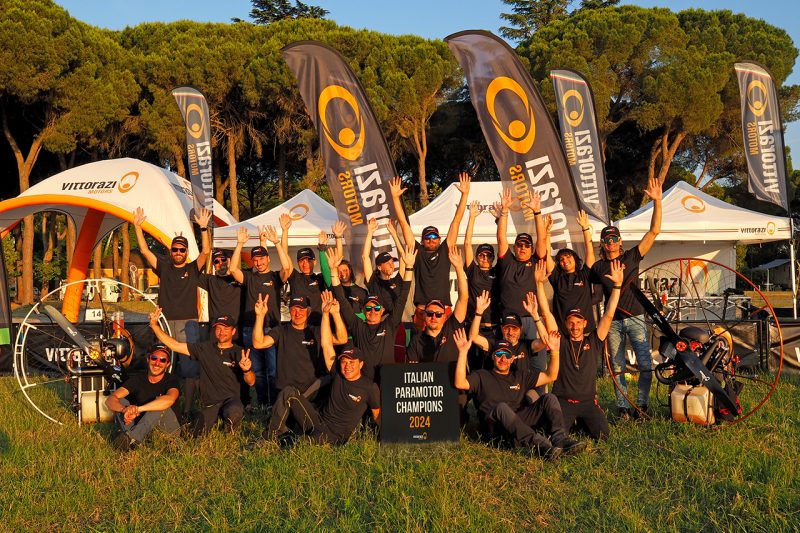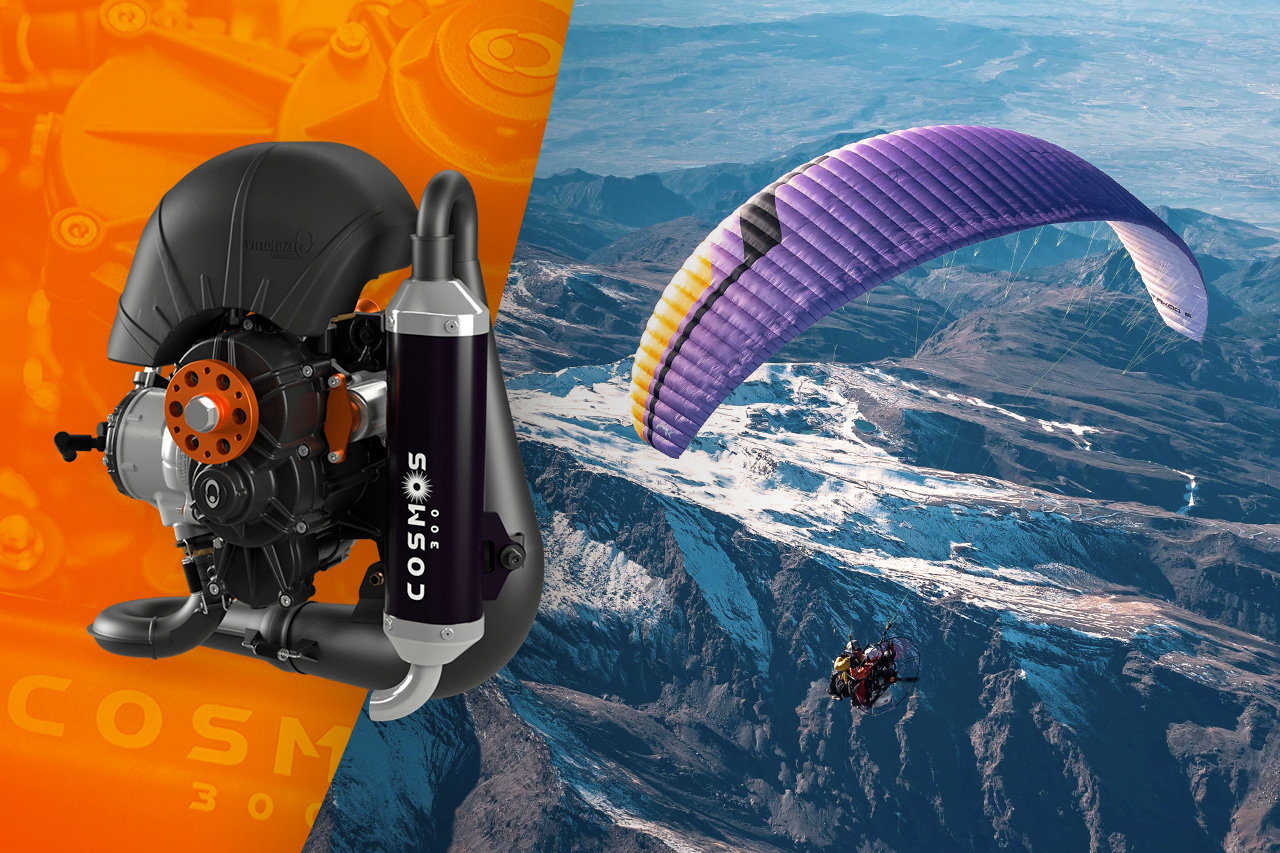

19/01/2024
THE COSMOS300 MARKS A NEW CHAPTER.
Ramon Morillas, Cosmos300, and Vittorazi Motors have made paramotoring history with yet another double record.
Ramon Morillas, along with the powerful paramotor engine Vittorazi Cosmos300, set two new world records in a foot-launched tandem flight PF2 category (still under review for FAI’s verification):
1- Maximum altitude record, soaring to an impressive height of 7,186 meters above the majestic Sierra Nevada;
2- Climb time record to 6,000 meters in just 1 hour and 40 minutes.
The Cosmos300 MY23 engine was the beating heart of this unprecedented achievement, demonstrating exceptional resilience, facing freezing temperatures and challenging atmospheric conditions, and emerging as the undisputed protagonist of this story.
Morillas, a member of the Vittorazi Racing Team, revealed to us the details of his preparation and flight strategy that shaped the course of this daring feat in an exclusive interview. This success is not only a personal triumph but also a heartfelt tribute to the founder of Vittorazi, Vittoriano Orazi. His fundamental contribution to the realization of this significant brand is celebrated with emotion, recognizing his legacy that continues to push the boundaries of innovation.
Morillas and the Cosmos300 have written an indelible chapter in the history of paramotoring, surpassing every limit at over 7,000 meters above sea level. The future promises to be even more exciting, with the Vittorazi Team ready to explore new horizons.

Hello Ramon, how do you prepare for these events?
It’s challenging to describe how I prepare because the knowledge required for these challenges is the sum of all the experiences gained throughout my career. I can say that, technically, on one side, there’s the preparation of the oxygen system to avoid hypoxia, and on the other, the choice of the appropriate clothing for the very low temperatures you face at those heights, as well as flight instruments for record validation. We also need a judge and an FAI observer to confirm that they have seen us take off. It’s very important to do some test flights with the whole equipment to ensure that everything works.
Did you have a precise strategy before takeoff?
The strategy was basically to try to reach the highest possible altitude near the Sierra Nevada and organize the flight plan to decide the route to follow and how to use oxygen during the flight.
What equipment did you use?
For the main equipment, I opted for a Vittorazi Cosmos300 engine mounted on a PAP Tinox 1500 frame. The wing used is a Niviuk Takoo 6. Additionally, we wore specific high-altitude clothing, NAC Horus and Anubis helmets, and captured images with a GoPro 10. To ensure recording and validation of the record with the FAI, we used three flight instruments. To complete the equipment, an oxygen tank with two breathers.
How was the flight?
The flight went as expected; I flew with the engine for about two hours, almost at maximum power. The weather conditions were perfect, with little wind at altitude and very stable throughout the day. We had about two weeks of high-pressure weather. Although it may seem crazy to fly so high in winter due to much colder temperatures compared to summer, the cold but stable air or atmosphere is a very good condition to get the maximum performance from the equipment.
What were the main difficulties of the flight?
First of all I never thought of reaching such high altitudes in tandem. So, even though we had good equipment, once we reached 7,000 meters, we didn’t have suitable clothing for those temperatures and altitudes typical of climbers who climb 8,000 meters. So, we had to endure very cold temperatures once we passed 5,500 meters of altitude. The lack of oxygen was also a condition to keep under control due to the risk of hypoxia (lack of oxygen in the blood) because the system used was no longer recommended at the altitude we managed to reach. Therefore, we had to pay close attention to hypoxia symptoms as they set in very quickly, and if not noticed in time, it becomes very dangerous.
How did the Vittorazi Cosmos300 contribute to this great result?
The Cosmos300 worked spectacularly. I had already had an experience two years ago when I set the world record in single-seat trike, and I knew how incredible this engine was. A carbureted engine that continues to deliver power from 0 to 7,000 meters without interruptions! This exceptional result at such high altitudes certifies its absolute reliability, a feature that I believe no other engine can match. It’s a concept I’ve been trying to emphasize for years: in aviation, there are no aircraft flying so high without the use of turbines or turbo. This success is the result of the combination of an extraordinary engine, pilot experience, and great equipment.
What did you think when you realized you had set the world record?
When I get involved in adventurous projects or record attempts, I usually don’t get excited, but in this case, it was different. Once we reached 6,000 meters, I already knew I had set the record, but in my mind, the usual mechanism of surpassing limits clicked in. We held on and kept climbing. If I didn’t have the mental strength to raise the bar each time, it wouldn’t be me.
What drives you each time to exceed these limits?
I have always said that one of my motivations in paragliding and paramotoring is to seek the limits of my sport and, at the same time, discover what my limits are, and understand what I’m made of. As I said before, otherwise, it wouldn’t be me. This is my style; just look at how many different projects and challenges I have completed in this sport to understand what motivates me.
To whom do you dedicate this result?
I dedicate this result to the founder of Vittorazi Motors, Vittoriano Orazi, without knowing that the day we set the record, December 23rd, was also his birthday. Vittoriano Orazi deserves this dedication for being the pioneer of this important brand in our sport and, above all, for the beautiful family that has followed his legacy.
What are your next projects?
The next project will be in January when I will participate in the Airborne Explorer expedition in Colombia, a scientific project where we will explore the Andean moors with scientists, using paramotors as a means to reach unexplored places where endemic insect species live. The use of a paramotor, a Vittorazi Moster185, in the service of science and research.
Again congratulations to Ramon Morillas, The Man of the Records.
